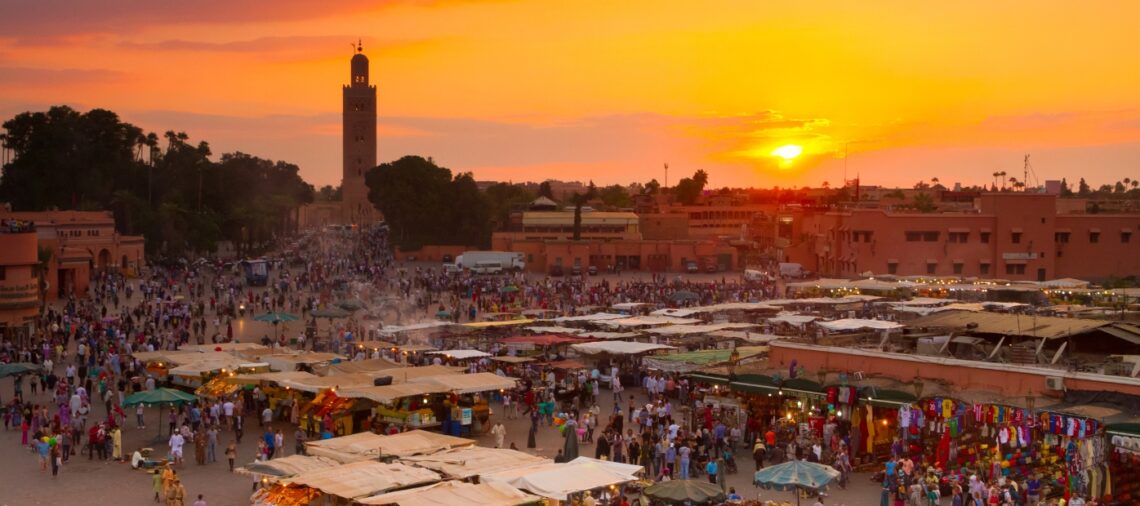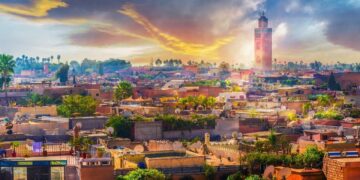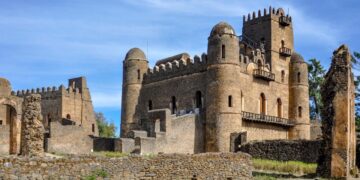Morocco is a captivating destination with its rich history, vibrant culture, and breathtaking landscapes. However, when exploring this beautiful country, it’s important to be aware of certain mistakes that tourists should avoid making. From respecting local customs to staying vigilant in crowded areas, this article will provide valuable tips and tricks to ensure a safe and enjoyable journey through Morocco. Discover the pitfalls to avoid and the best strategies to embrace during your travels in this enchanting North African gem.
Here you find the best hotels in Marrakech
Here you find the best hotels in Casablanca
Best prices for plane tickets to Morocco:
- Mistakes to Avoid as a Tourist in Morocco
- Transportation
- Culture and Etiquette
- Money and Scams
- Safety
- Food and Water
- Exploring the Medina
- Getting Lost Without a Map or Guide
- Entering Closed-Off Areas
- Not Respecting Local Customs and Privacy
- Desert Excursions
- Booking with Unlicensed Operators
- Not Preparing for Extreme Weather Conditions
- Underestimating the Need for a Guide
- Souvenir Shopping
- Communications
- Using Unsecured Public Wi-Fi
- Not Informing Family or Friends about Travel Plans
- Ignoring Local Regulations on Internet Usage
- Health and Hygiene
- FAQs about a safe travel to Morocco
- Is Morocco a safe destination for travelers?
- What are the major safety concerns in Morocco?
- Do I need to worry about terrorism in Morocco?
- Is it safe for solo female travelers in Morocco?
- Can I drink tap water in Morocco?
- Are there any health concerns in Morocco?
- How can I stay safe when exploring the Moroccan desert or remote areas?
- Are there any specific cultural norms or customs I should be aware of to stay safe?
- Is it safe to use public transportation in Morocco?
- How can I protect myself from common travel scams in Morocco?
Mistakes to Avoid as a Tourist in Morocco
Transportation
Taking Unofficial Taxis
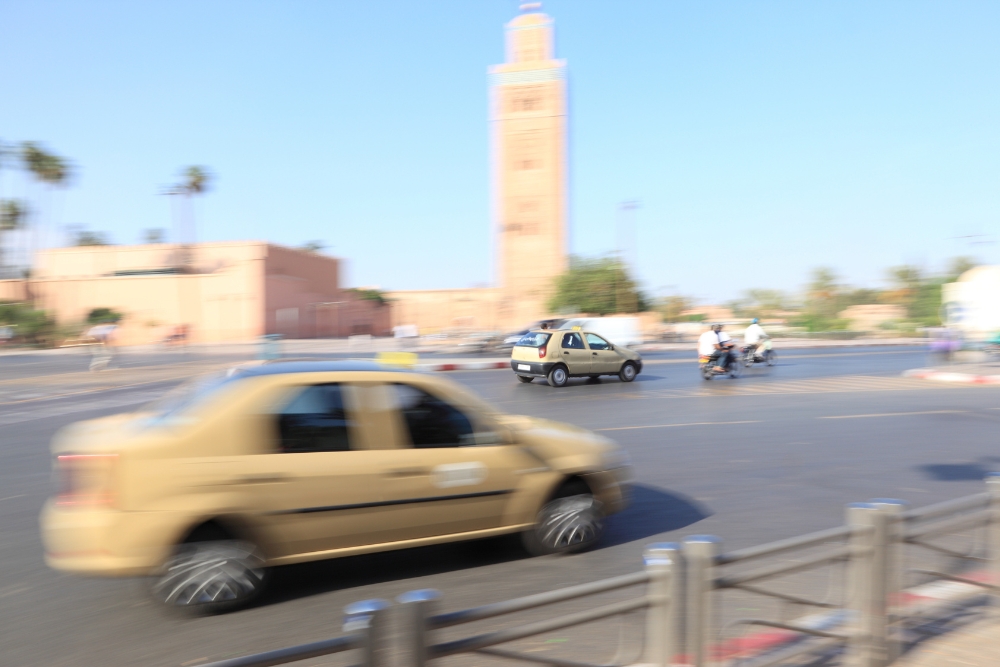
When traveling around Morocco, it is important to be cautious when taking taxis. While official taxis with meters are readily available, unofficial taxis may try to overcharge tourists. These unofficial taxis often lack proper licensing and may not adhere to safety regulations. To ensure a safe and fair ride, always look for the official yellow taxis with meters and ask the driver to turn it on before starting the journey. This will help you avoid unnecessary negotiations and ensure a fair fare. Here is a guide for taxis in Morocco, together with a fare calculator.
Ignoring Public Transport Options
While taxis are a convenient mode of transportation, it is worth considering the use of public transport options in Morocco. The country has a well-established network of buses and trains, offering affordable and reliable transportation between cities and towns. By utilizing public transport, you not only save money but also get the opportunity to interact with the locals and experience the authentic ambiance of Morocco.
Driving Without a Guide
If you plan on driving in Morocco, it is highly recommended to hire a local guide or driver who is familiar with the local traffic rules and road conditions. Driving in Morocco can be challenging, especially in cities where traffic can be chaotic and road signs may not always be clear. A guide can help navigate the roads, communicate with locals if needed, and ensure a smoother and more enjoyable experience.
Culture and Etiquette
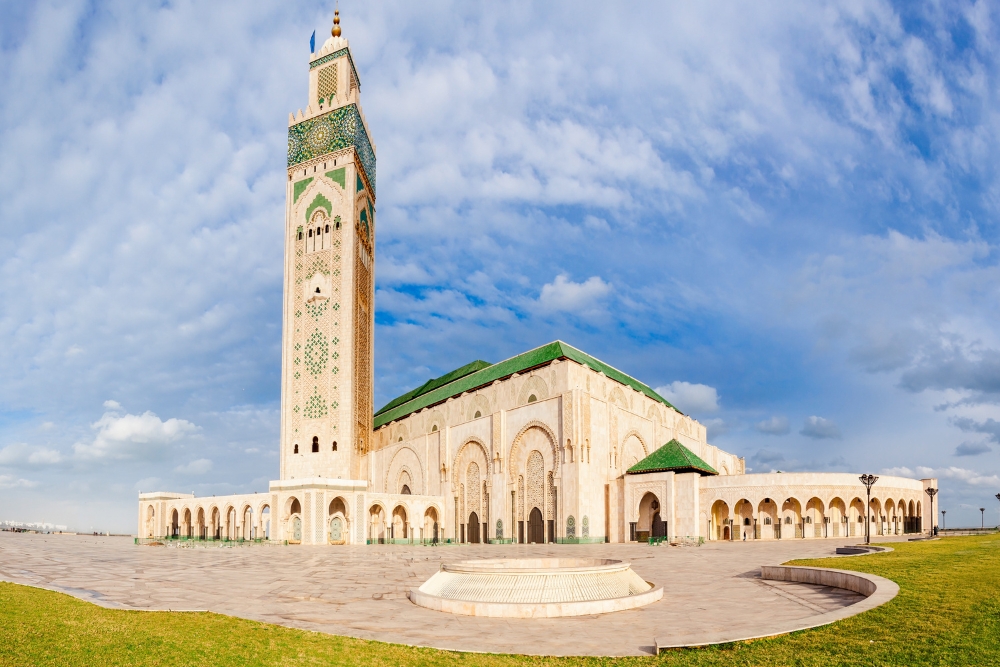
Dressing Inappropriately
Morocco is a predominantly Muslim country with a conservative culture. It is important to dress modestly and respect local customs and traditions. Revealing clothing, particularly for women, may be seen as disrespectful and may attract unwanted attention. To show cultural sensitivity and avoid any potential discomfort, it is advisable to dress modestly, covering shoulders and knees, especially when visiting religious sites or public places.
Disrespecting Religious Customs
Religion plays a significant role in Moroccan society, and it is essential to respect and observe religious customs. When visiting mosques or holy sites, it is customary to dress appropriately and remove your shoes. Non-Muslims are generally not allowed inside mosques during prayer times, so it is important to check the visiting hours beforehand. Additionally, it is considered disrespectful to point your feet towards anyone or anything, as feet are considered unclean in Moroccan culture.
Neglecting to Learn Basic Arabic Phrases
While many people in tourist areas may speak English or French, learning some basic Arabic phrases can greatly enhance your interactions with the locals and show your respect for the culture. Simple greetings, such as “Salam Alaikum” (peace be upon you) and “Shukran” (thank you), can go a long way in creating a positive impression and fostering connections with the Moroccan people.
Money and Scams
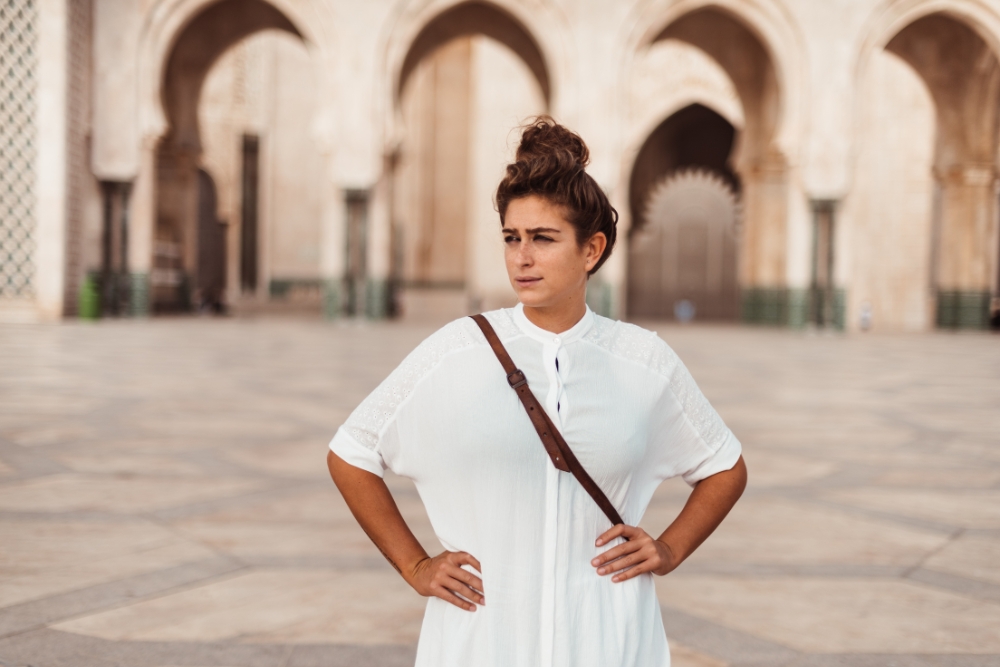
Exchanging Money at Unauthorized Places
When exchanging currency in Morocco, it is crucial to do so at authorized exchange offices or banks. Unauthorized or black-market currency exchanges may offer tempting rates but are often involved in scams or illegal activities. To ensure the safety of your money, choose reputable exchange offices with transparent rates and avoid exchanging currency with individuals on the streets. The official currency of Morocco is the Moroccan Dirmah (in October 2023 – 100 Moroccan Dirham = 9.79 USD).
Falling for Tourist Scams
As a tourist, it is essential to be aware of common scams and exercise caution to protect yourself from potential financial losses. Some common scams in Morocco include fake tour guides, overcharging for goods or services, and distraction techniques to steal personal belongings. Always be vigilant, compare prices before making a purchase, and trust your instincts if something seems too good to be true.
Not Bargaining in the Markets
Moroccan markets, or souks, are known for their vibrant atmosphere and unique products. Bargaining is a common practice in these markets, and it is expected that you negotiate the price with the seller. Engaging in friendly negotiation can be a fun and rewarding experience, allowing you to secure fair prices and interact with local artisans. Don’t be afraid to haggle, but remember to do so respectfully and with a friendly attitude.
Safety
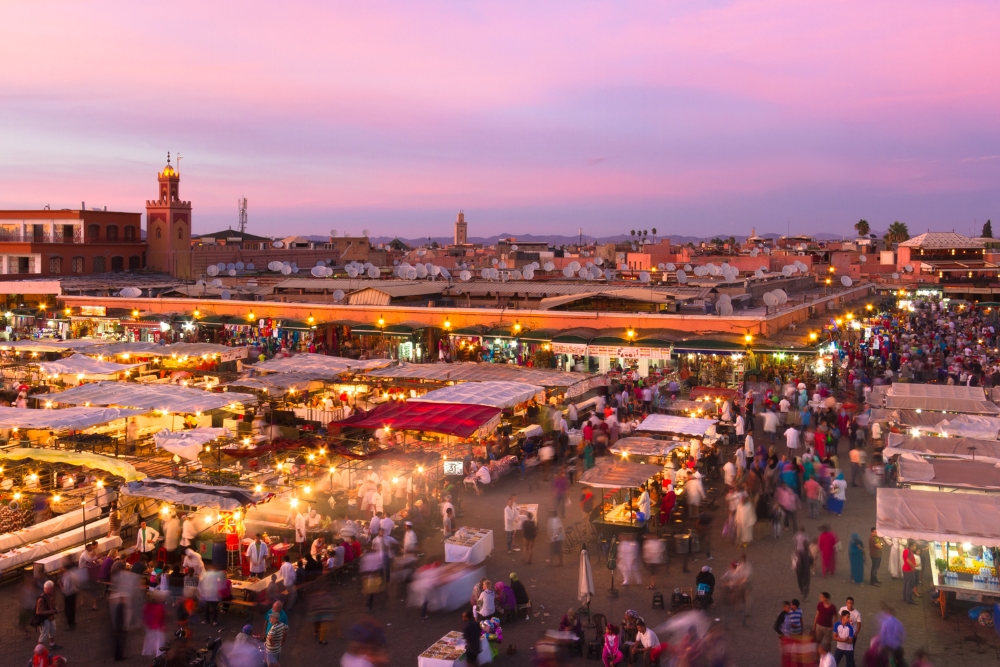
Walking Alone at Night
While Morocco is generally safe for tourists, it is always advisable to take precautions, especially when walking alone at night. Stick to well-lit areas and busy streets, and avoid dimly lit or secluded alleys. It is also a good idea to inform your accommodation about your plans and ask for their advice on safe routes and areas to avoid.
Leaving Valuables Unattended
Whether you are exploring the bustling streets of Marrakech or relaxing on one of Morocco’s stunning beaches, it is crucial to keep your valuables secure. Avoid leaving your belongings unattended, especially in crowded areas or tourist hotspots. Consider using a money belt or a secure bag to carry your important documents, cash, and electronic devices.
Not Being Cautious in Crowded Places
Morocco is known for its vibrant and bustling markets, festivals, and tourist attractions. While these crowded places can be exciting, they can also create opportunities for pickpocketing and theft. Stay alert and be mindful of your surroundings, particularly in crowded areas. Keep your bags and belongings close to you, and avoid displaying expensive items that may attract unwanted attention.
Food and Water
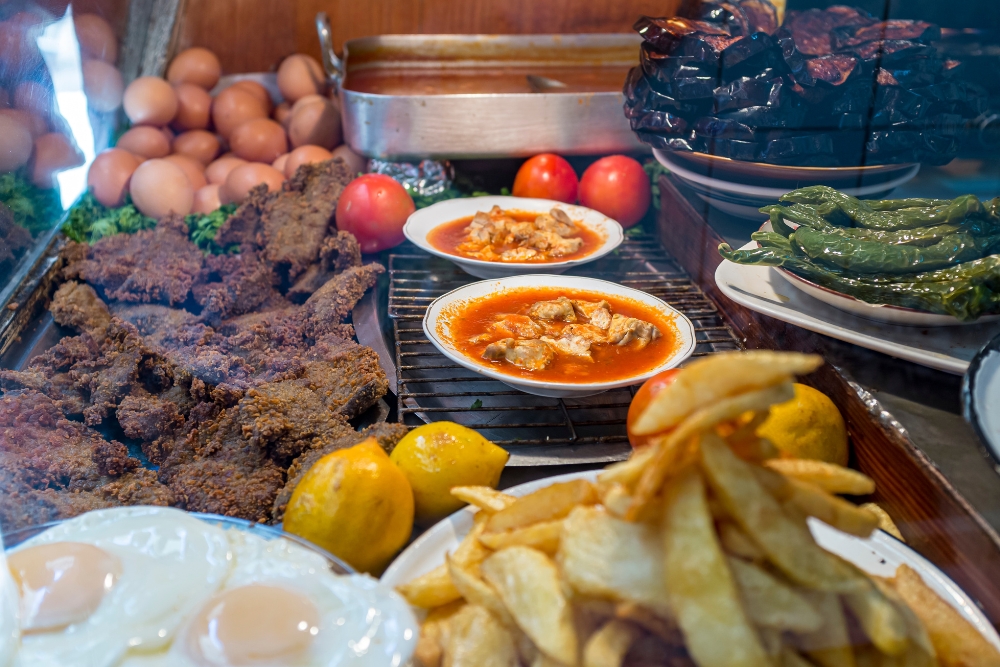
Eating Street Food Without Caution
Moroccan cuisine is renowned for its flavors and variety, and trying street food is a must-do for many tourists. However, it is important to exercise caution when consuming street food to avoid any digestive issues. Choose vendors with clean cooking practices and high turnover, ensuring that your food is freshly prepared. Avoid undercooked or raw foods, and consider carrying hand sanitizer or wet wipes for hygiene purposes.
Drinking Tap Water
To avoid waterborne illnesses, it is generally recommended to avoid drinking tap water in Morocco. Stick to bottled water from trusted brands that are readily available at shops, hotels, and restaurants. Additionally, exercise caution when consuming beverages with ice, as the ice may be made from tap water. Stay hydrated and prioritize your health by opting for sealed bottled water during your stay.
Ignoring Food Hygiene Practices
In addition to street food safety, it is important to be mindful of food hygiene practices when dining in restaurants or cafes. Check the cleanliness of the establishment, including food preparation areas and utensils. Wash your hands before and after meals, and use utensils or bread to handle shared dishes, if provided. Following these simple practices can significantly reduce the risk of foodborne illnesses.
Exploring the Medina
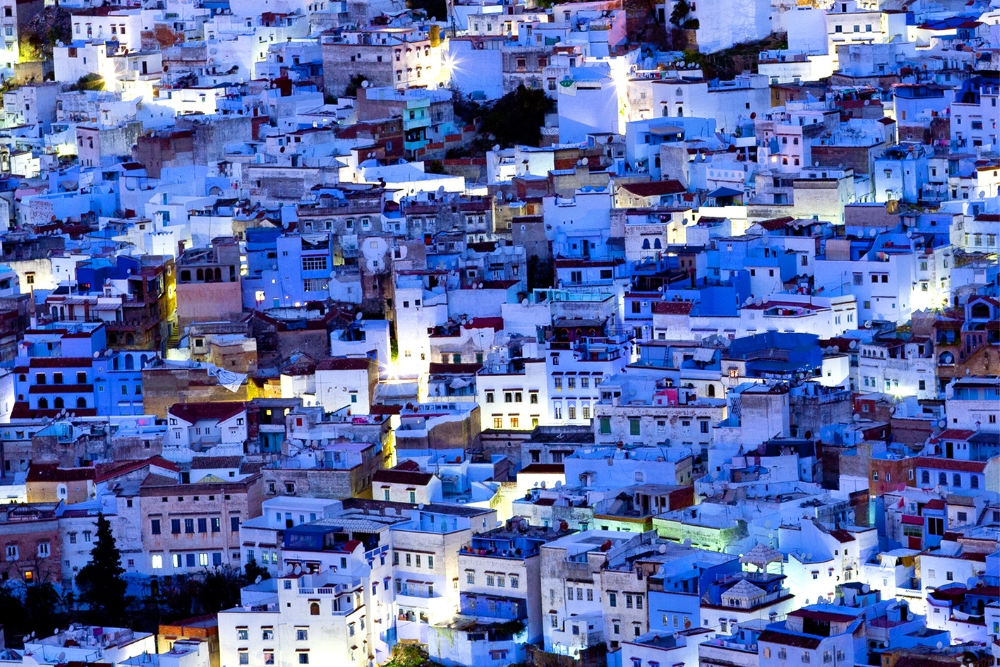
Getting Lost Without a Map or Guide
The medinas, or old town areas, in Moroccan cities are a labyrinth of narrow streets and alleyways that can be both fascinating and overwhelming for tourists. To avoid getting lost, it is advisable to carry a map or hire a reputable guide who can navigate the intricate alleys and provide historical context. Guides are also invaluable in ensuring your safety and helping you make the most of your medina exploration.
Entering Closed-Off Areas
While the medinas are vibrant and offer an authentic glimpse into Moroccan culture, it is essential to respect closed-off areas. Some houses or areas may be off-limits to tourists, either for privacy or cultural reasons. Always be mindful of signs or indications that suggest restricted access and refrain from entering these areas without permission.
Not Respecting Local Customs and Privacy
Moroccan culture places a strong emphasis on privacy and personal space. It is important to respect local customs and avoid intruding on private property or personal space without permission. Refrain from taking photos of individuals without their consent and be mindful of local customs regarding appropriate behavior in public spaces. By respecting these cultural norms, you demonstrate your appreciation for the local culture and foster positive interactions.
Desert Excursions
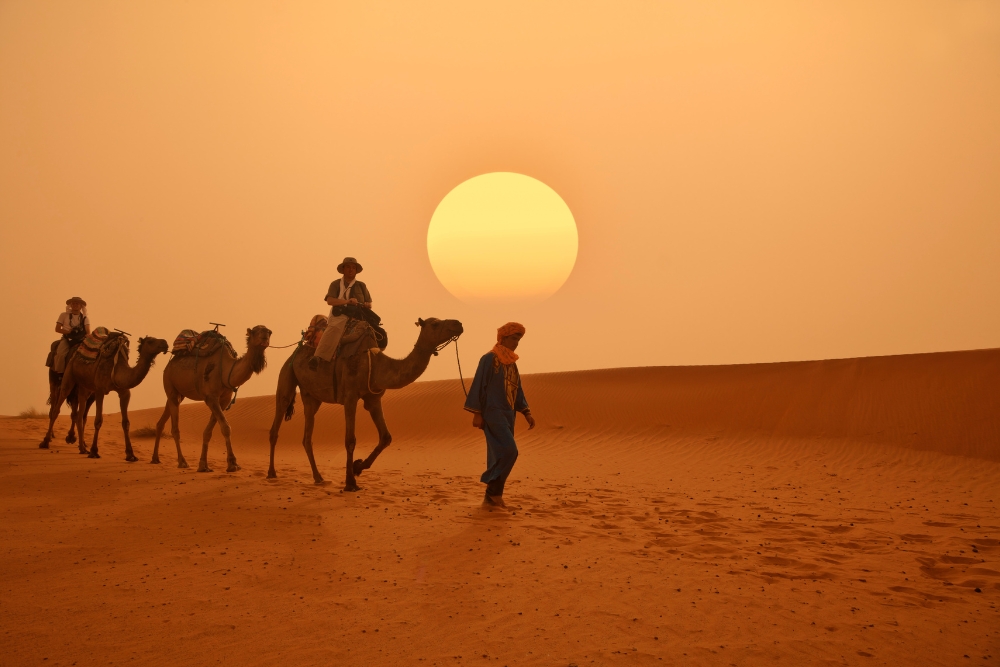
Booking with Unlicensed Operators
Exploring the majestic Sahara Desert is a dream for many travelers visiting Morocco. However, it is crucial to choose a licensed and reputable operator for your desert excursion. Unlicensed operators may not adhere to safety guidelines and may compromise your experience. Research and read reviews before making a booking, and ensure that your chosen operator has the necessary licenses and certifications.
Not Preparing for Extreme Weather Conditions
The desert can be an unforgiving environment, with extreme temperatures during both the day and night. It is essential to pack appropriate clothing and gear to protect yourself from the harsh sun and cold nights. Opt for lightweight, breathable clothing, and wear a hat and sunglasses to shield yourself from the sun’s rays. Don’t forget to bring sunscreen and ample water to stay hydrated throughout your desert adventure.
Underestimating the Need for a Guide
Exploring the vast expanse of the desert can be challenging without a knowledgeable guide. A guide not only ensures your safety but also provides valuable insights into the desert ecosystem and cultural significance. They can lead you to hidden gems, explain local traditions, and enhance your overall experience. Don’t underestimate the value of a skilled guide when venturing into the mesmerizing Moroccan desert.
Souvenir Shopping
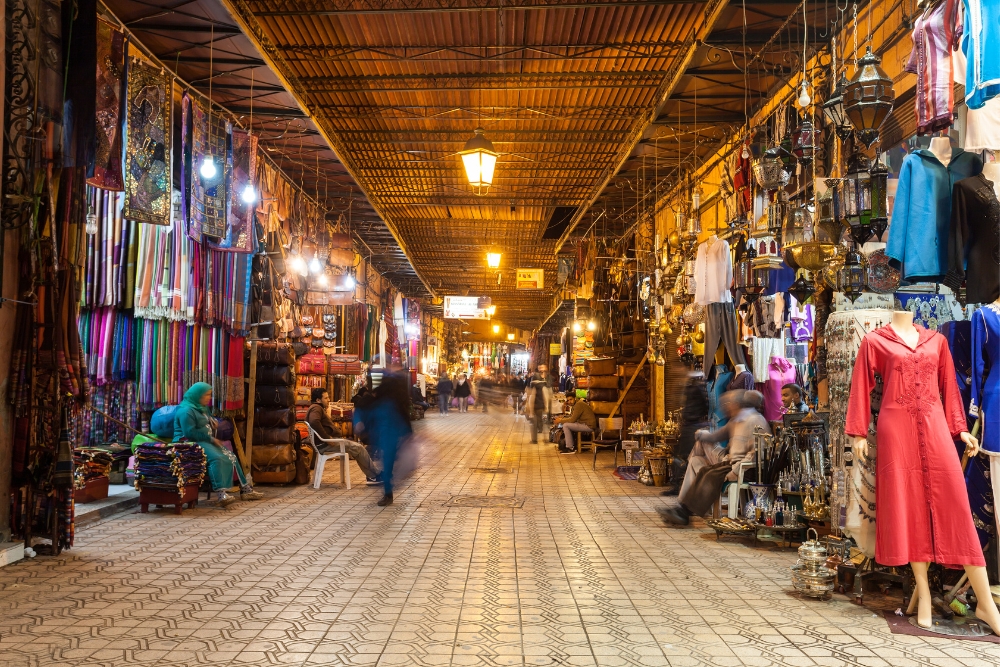
Buying Counterfeit Products
Morocco is known for its unique arts and crafts, and it is tempting to purchase souvenirs as mementos of your trip. However, be cautious of buying counterfeit or low-quality products. Some vendors may sell imitation goods that may not be of the promised quality or authenticity. To ensure your purchases are genuine, consider shopping at reputable stores or cooperatives recommended by locals or your accommodation.
Paying Excessively High Prices
Bargaining is an integral part of the shopping experience in Morocco, particularly in the markets or souks. Tourists are often quoted higher prices than locals, so it is important to negotiate and seek fair prices for your purchases. Don’t be afraid to ask for a discount and be prepared to walk away if the price doesn’t meet your expectations. Remember, bargaining is a friendly and customary practice, so embrace it and enjoy the process.
Neglecting to Check Import Restrictions
Before purchasing souvenirs in Morocco, it is crucial to familiarize yourself with the import restrictions of your home country. Some items, such as certain types of wood, animal products, or cultural artifacts, may require special permits or may be prohibited altogether. Be aware of the customs regulations to avoid any legal complications or confiscation of your purchases upon returning home.
Communications
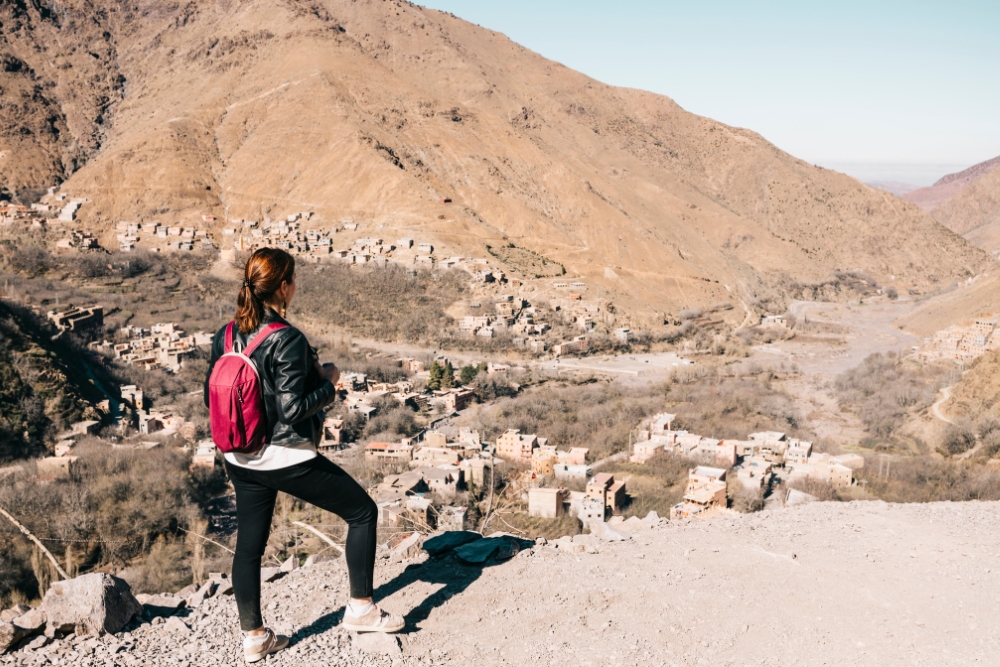
Using Unsecured Public Wi-Fi
While convenient, public Wi-Fi networks in Morocco may not always be secure. Avoid accessing sensitive information or making financial transactions on public networks to protect yourself from potential cyber-attacks or identity theft. If you need to use the internet in public places, consider investing in a virtual private network (VPN) to encrypt your connection and ensure a higher level of security.
Not Informing Family or Friends about Travel Plans
When traveling to Morocco, it is wise to inform your family or friends about your travel plans. This includes sharing your itinerary, contact details of your accommodation, and emergency contact numbers. In case of any unexpected events or emergencies, it is essential for your loved ones to know your whereabouts and be able to assist you if needed.
Ignoring Local Regulations on Internet Usage
While internet access is widely available in Morocco, it is essential to familiarize yourself with local regulations on internet usage. Certain websites or online content may be restricted or blocked. To prevent any issues, respect the local regulations and refrain from accessing or sharing prohibited content during your stay in Morocco.
Health and Hygiene
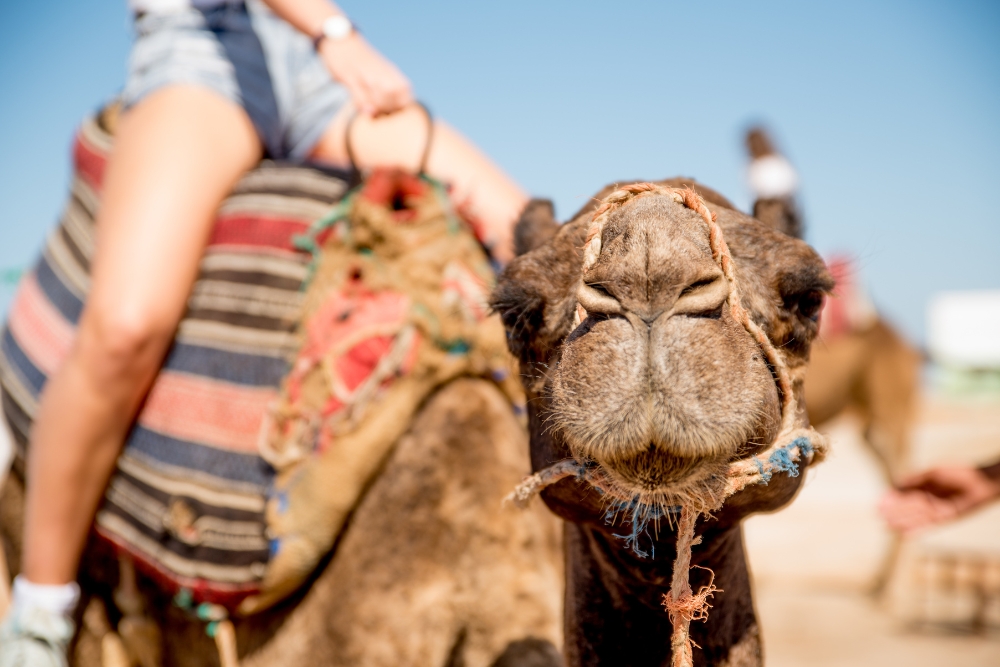
Not Getting Necessary Vaccinations
Before traveling to Morocco, consult with your healthcare provider to ensure you have received all necessary vaccinations. Generally speaking, you can travel with no special vaccinations in Morocco, but vaccinations for diseases such as hepatitis A, typhoid, and tetanus are generally recommended. Additionally, consider packing a basic first aid kit with essential medications, bandages, and insect repellent to address minor health concerns during your trip.
Neglecting to Use Sunscreen
Morocco boasts ample sunshine throughout the year, and protection from harmful UV rays is crucial. Apply sunscreen with a high sun protection factor (SPF) to all exposed skin, even on cloudy days. Remember to reapply every few hours, especially if you are spending time outdoors or in the desert. Sunburn can not only ruin your holiday but also pose significant risks to your health.
Disregarding Basic Hygiene Practices
Maintaining good hygiene practices while traveling is essential to prevent illnesses. Wash your hands frequently with soap and water, especially before meals. If soap and water are not available, use a hand sanitizer with at least 60% alcohol content. Respect local customs regarding hygiene, such as removing your shoes before entering someone’s home, and carry tissues or toilet paper, as they may not always be provided in public restrooms.
FAQs about a safe travel to Morocco
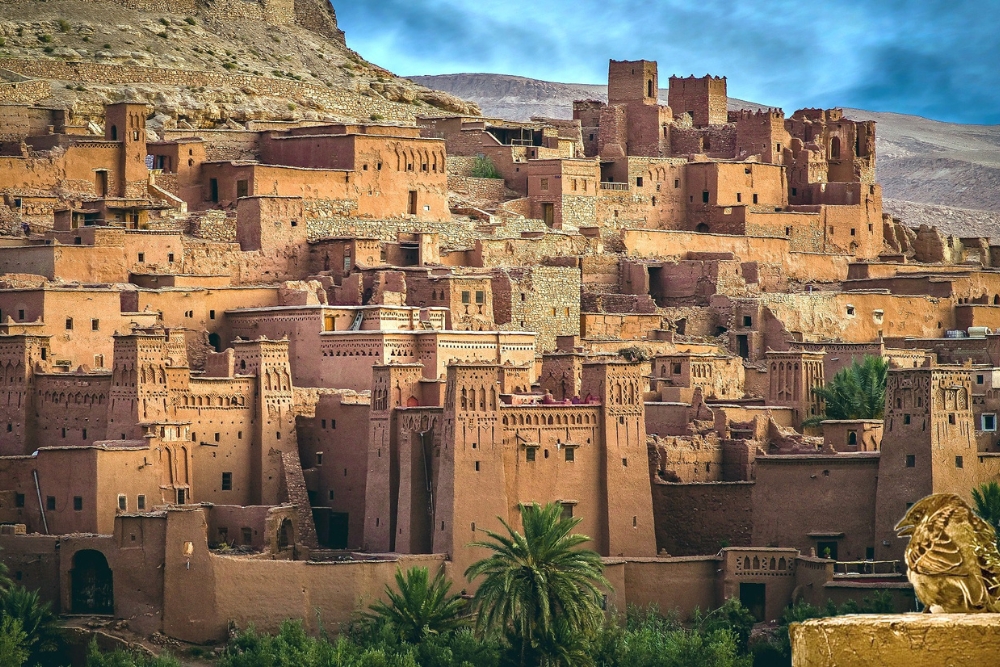
Is Morocco a safe destination for travelers?
Morocco is generally considered safe for tourists. However, like any other destination, it’s important to exercise caution and stay informed about local conditions. Petty crime and pickpocketing can occur, particularly in crowded areas.
What are the major safety concerns in Morocco?
While Morocco is relatively safe, travelers should be cautious about scams, theft, and avoid venturing into poorly lit or isolated areas at night. Some areas, particularly near the border with Algeria, may have security concerns, so it’s advisable to check travel advisories.
Do I need to worry about terrorism in Morocco?
Morocco has made significant efforts to combat terrorism and maintain security. Tourist areas and major cities are generally safe from terrorism, but it’s wise to stay updated on travel advisories and follow local guidance.
Is it safe for solo female travelers in Morocco?
Morocco is generally safe for solo female travelers. However, it’s important to dress modestly, be aware of your surroundings, and avoid walking alone at night. It’s also a good idea to book accommodation in reputable areas.
Can I drink tap water in Morocco?
It’s best to avoid drinking tap water in Morocco. Stick to bottled water, which is widely available. Also, be cautious about consuming raw or unpeeled fruits and vegetables that may have been washed in tap water.
Are there any health concerns in Morocco?
Travelers should be up to date on routine vaccinations and consider vaccines for hepatitis A and typhoid. It’s also advisable to carry a basic medical kit with essential medications. Make sure you have travel insurance that covers medical emergencies.
How can I stay safe when exploring the Moroccan desert or remote areas?
When venturing into the desert or remote regions, it’s best to hire a reputable local guide and travel with a group. Ensure you have adequate supplies, including water, and inform someone of your itinerary. Extreme temperatures can pose risks, so be prepared.
Remember that safety is a priority in any travel destination, and being well-informed and prepared can greatly enhance your experience in Morocco. Always check the latest travel advisories from your government before planning your trip and stay aware of your surroundings while you explore this beautiful country.
Are there any specific cultural norms or customs I should be aware of to stay safe?
Yes, respecting Moroccan customs and traditions is essential for a safe and enjoyable trip. Dress modestly, especially in more conservative areas, and ask for permission before taking photos of locals. Avoid public displays of affection, as they can be considered inappropriate.
Is it safe to use public transportation in Morocco?
Public transportation, including trains and buses, is generally safe and efficient for travelers. However, be cautious of your belongings, especially in crowded areas and on long-distance buses. Private taxis and reputable car rental services are also available options for getting around safely.
How can I protect myself from common travel scams in Morocco?
To avoid falling victim to scams, be wary of unsolicited offers of assistance or tours from strangers. Use only licensed tour guides and agencies for excursions. Bargaining is common in markets, so be prepared to haggle but do so respectfully. It’s also a good idea to research common scams in Morocco before your trip to recognize potential red flags.
By following these guidelines and avoiding common mistakes when visiting Morocco, you can ensure a safe, enjoyable, and culturally immersive experience during your visit to this beautiful country. By embracing the local customs, respecting the culture, and being mindful of your own safety, you will create lasting memories and make the most of your time in this captivating country.
You may also like: 11 Mistakes tourists shouldn’t make in Egypt. Things that are not safe in Egypt

